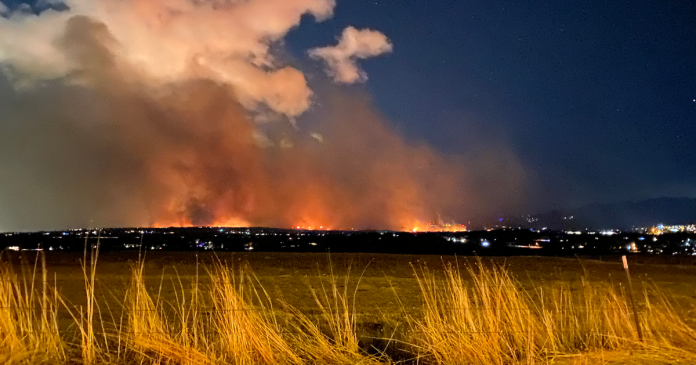Dit bericht verscheen eerder bij FOSSlife
As Earth’s climate crisis becomes both more visible and more urgent — as experienced through increasingly dangerous droughts, floods, fires, and other severe weather events — individuals may feel powerless to effect any meaningful change. However, individual efforts can still have a far-reaching impact.
Although comprehensive climate action will require major policy change, “about a third of the climate solutions we need are going to be led by individual decision-making,” said Project Drawdown’s Jonathan Foley in a recent Wired article written by Grace Huckins. These decisions can involve personal choices, such as choosing a plant-based diet, recycling and composting, or reducing air travel.
“Researchers generally agree that people can make the most positive changes in three areas of their lives: transportation (flying and driving), diet (meat consumption and food waste), and household gas and energy use. By taking one transatlantic flight, an individual puts the equivalent of 1.6 tons of carbon dioxide into the atmosphere — a huge fraction of the 20 tons the average American produces each year,” Huckins writes.
Open Source Power
Here at FOSSlife, we believe that open source offers additional ways to make a difference and that the tenets of open source — such as collaboration, community, and transparency — are key to finding climate solutions. Thus, we’ve put together various resources pointing to open source projects that are actively working toward a more sustainable future here on our planet.
Such projects range anywhere from a handy website carbon calculator to climate stripes for visualizing global temperature changes to LF Energy’s goals of modernizing the power grid to transition to renewable energy.
Curated List
The most comprehensive resource we’ve found comes from Protontypes, which provides a curated list of open technology projects aimed at sustaining a stable climate, energy supply, and natural resources.
The list includes more than a thousand projects in categories such as:
- Renewable energy, including solar, wind, geothermal, hydro, and bioenergy
- Energy systems, including energy distribution and grids
- Earth systems, including atmosphere, biosphere, cryosphere, and hydrosphere
- Climate science, including earth and climate modeling, meteorological observation, and forecasting
- Natural resources, including air quality, water supply, agriculture, and nutrition
- Knowledge platforms, data catalogs, and other lists
GitHub lists 799 public repositories within the topic of climate change, including projects such as:
- Electricity Map, which provides real-time visualization of the CO2 emissions from electricity consumption
- Liquid Prep, a solution for farmers looking to optimize their water usage, especially in times of drought
- NMF.earth, which aims to help you understand and reduce your carbon footprint
- Shootismoke, a mobile app that measures your city’s air pollution in terms of daily cigarettes smoked
Global Impact
Using, supporting, and contributing to open source climate projects can also have a multiplying effect. As Huckins notes, individual action can be far more powerful than most people realize, and “studies consistently show that social norms play a major role in whether or not people decide to make climate-friendly choices. When one person puts a solar panel on their roof, for example, the odds of other people in their zip code installing solar panels noticeably increase. … By making a climate-friendly choice, you aren’t just reducing your own emissions — you are inspiring others to reduce theirs.”
Join FOSSlife in raising awareness of open source climate initiatives and be a catalyst for change.
Learn More
Contact us to learn about partnership and sponsorship opportunities.
Dit bericht verscheen eerder bij FOSSlife














